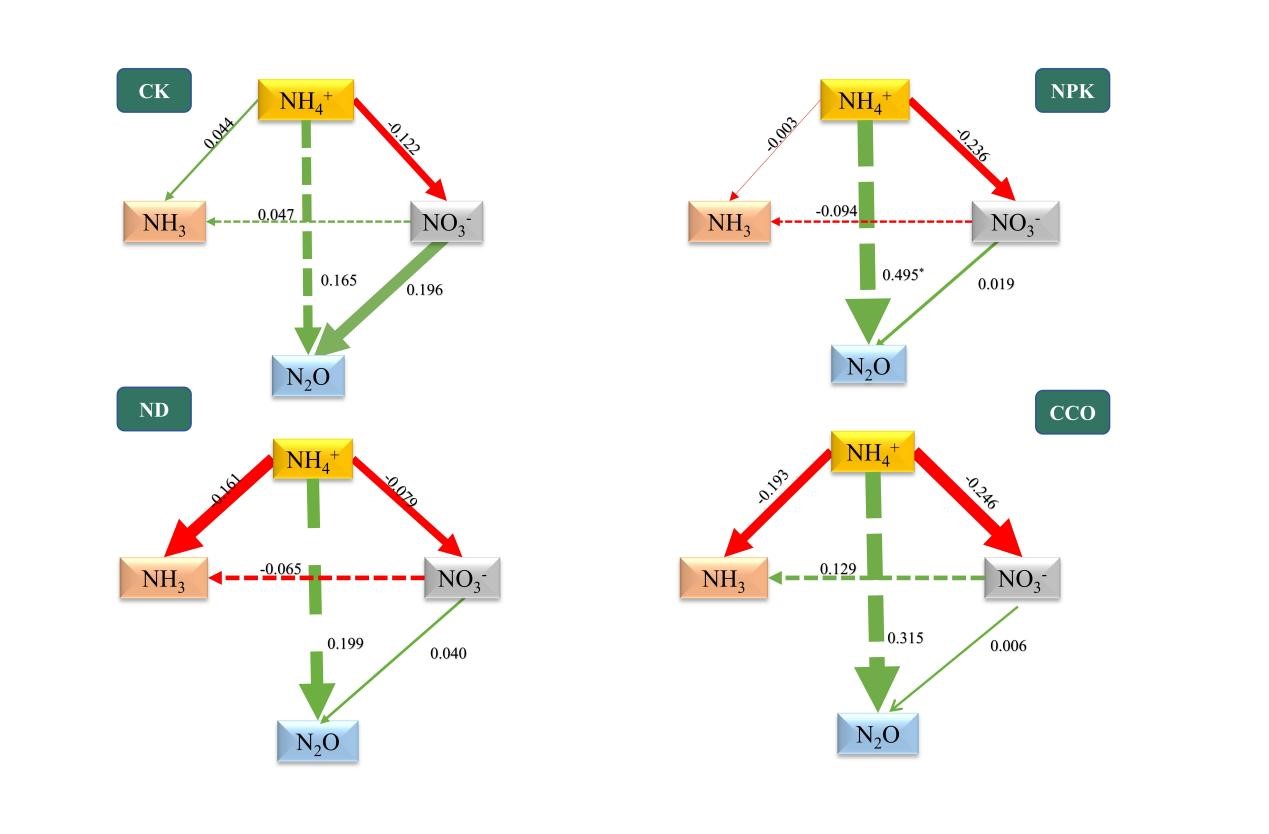Researchers from the Institute of Applied Ecology of the Chinese Academy of Sciences have developed a new environmentally friendly fertilizer additive that significantly enhances crop yields while reducing emissions of harmful gases.
The study, published in Soil & Tillage Research, represents a major advancement in sustainable agriculture and soil nitrogen management.
The additive, 2-cyclopenten-1-one (CCO), is a plant-derived compound that functions as a dual-action nitrogen inhibitor. It slows the transformation and loss of nitrogen in soil, thereby improving nitrogen use efficiency. Compared to conventional inhibitors such as NBPT (N-butylthiophosphoric triamide) and DMPP (3,4-dimethylpyrazole phosphate), which face persistent challenges including rapid degradation, high production costs, and ecological concerns, CCO offers a greener and potentially more effective alternative.
Fertilizer inhibitors are often described as the "microchips" of stabilized fertilizers due to their role in optimizing nutrient efficiency in a manner similar to how microchips optimize the performance of electronic devices. To evaluate the effectiveness of CCO, the research team conducted field trials and metagenomic sequencing at the National Agro-ecosystem Observation Station in Shenyang, comparing CCO with traditional nitrogen inhibitor (ND) formulations combining NBPT and DMPP.
The results showed that both treatments reduced nitrogen loss and greenhouse gas emissions while increasing crop yields. Specifically, CCO and ND treatments suppressed ammonia (NH₃) volatilization, reduced emissions of nitrous oxide (N₂O) and carbon dioxide (CO₂), and enhanced the soil's methane (CH₄) uptake capacity. However, the two treatments differed significantly in their underlying molecular mechanisms.
Whereas ND treatment primarily modulated the expression of nitrogen-cycling genes such as amoB, nirS, and nisK, CCO treatment exhibited stronger regulatory effects on genes like norB and nirD, which are directly involved in denitrification.
Furthermore, metagenomic analysis revealed that CCO uniquely influenced soil microbial communities and key nitrogen metabolism pathways. Notable changes included shifts in the abundance of microbial genera such as Nocardioides and Nitrospira, as well as alterations in the expression of KEGG pathways like the electron transfer subunit of assimilatory nitrate reductase (K00360) and the NADH-dependent nitrite reductase small subunit (K00363).
This breakthrough not only enriches the portfolio of green inhibitor materials but also represents an important advancement in understanding the microbiological underpinnings of fertilizer efficacy.
According to the researchers, the study strengthens China's international standing in the field of eco-friendly fertilizer technologies and lays a solid foundation for the future development of sustainable, stabilized fertilizers. With agriculture facing mounting pressures to reduce its carbon footprint, innovations like CCO offer vital tools for a greener transition.

Path analysis of NH₃, N₂O, NH₄⁺-N, and NO₃⁻-N emissions under different treatments (Image by LI Yaqun)






